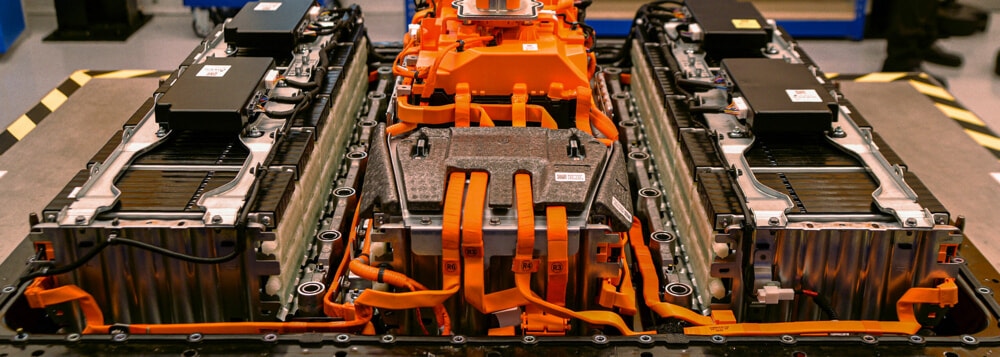
As the UK’s target to achieve net-zero carbon emissions by 2050 edges closer, one of the most significant challenges is decarbonising transport. The transition to electric vehicles (EVs) is seen as an essential part of this journey but what isn’t considered so often is the environmental impact of EVs and, in particular, the batteries which power them.
RECOVAS – a consortium that includes businesses, academics and regulators – is working to develop the UK’s first circular supply chain for EV batteries, giving them a second useful life where possible and safeguarding the rare earth metals they contain.
“Today, producing an electric vehicle creates around twice the amount of carbon emissions compared to an internal combustion engine car,”
explains Phil Ridley, NPI Manager at Autocraft Drivetrain Solutions.
“The break-even point for carbon emissions for an all electric vehicle is between 35,000km and 55,000km. Even this might be understated because these batteries use large amounts of lithium and cobalt, which require carbon intensive mining and water extraction and we don’t know the full impact of this.
“We therefore have to keep these batteries in use for as long as possible before we recycle them.”
Autocraft Drivetrain Solutions is Europe’s largest independent assembler of combustion engines for firms including Ford and Aston Martin and is a key member of the RECOVAS partnership. They have been involved in EV battery testing and repair for several years.
“Our role is focused on EV battery repair,”
Phil says.
“When most people think about the circular economy, they imagine recycling as the logical next step once a car reaches its end of life. That is incredibly inefficient in comparison to simply repairing the battery to be used again.”
Most EV batteries contain several modules, each containing the cells which store energy. These cells operate in a series circuit which means that one faulty cell can make an entire module unusable.
“Our team of engineers have shown that we can repair an EV battery from as low as 10% operational capacity right up to 90% by just repairing one or two modules,”
Phil says.
The technology is developing fast and Autocraft has repaired almost 500 batteries at its facility since 2017. Those which cannot be fixed to a level required by vehicle manufacturers – maintaining at least 80% capacity – can be ‘remanufactured’ for use in energy storage, the refurbishment of classic cars or even as a power source for festivals and weddings.
“One of the challenges we have had in scaling this technology up is that transporting batteries and vehicles is inefficient, expensive and carbon intensive. As part of the RECOVAS initiative, our team has designed and built a fully off grid mobile repair centre, called Autocraft REVIVE Mobile Workshop. It can go to garages, fleet operators and car makers to test and fix batteries on site,”
says Phil.
Autocraft Revive Mobile features a range of innovative technologies including augmented reality to ensure the quality and safety of every repair.
Being involved in RECOVAS has provided several benefits to Autocraft as it has developed the repair centre and given the firm the confidence to grow.
Alongside the valuable opportunity to share ideas, insights, and data with the partners, including leading metal recycler EMR, Connected Energy, Jaguar Land Rover, BMW and Bentley, membership of RECOVAS has also allowed the firm to access funding made available to the programme through the Advanced Propulsion Centre.
“RECOVAS has given us a platform to develop this technology and expand as a business. In the past three years we have grown our staff from 240 people to nearly 500 and we are now planning to open sites in Europe, partly due to the success of this project,”
Phil says.
Yet it’s the long-term impact of RECOVAS which stands out most, he believes:
“We could make the same mistakes that we made when the internal combustion engine was invented, thinking it’s fine just to throw it away after use. RECOVAS is helping to make sure we protect our natural resources and don’t make that mistake again.”